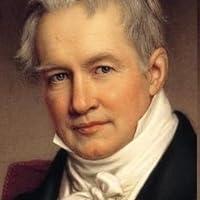
Alexander von Humboldt
Об авторе
Alexander von Humboldt was a Prussian polymath, geographer, naturalist, and explorer whose contributions to the sciences and his exploration of the Americas had a profound influence on future generations. Born in Berlin in 1769, he was educated in a variety of fields, including physics, geography, and natural history. Humboldt's most notable work, 'Cosmos,' aimed to unify the various branches of scientific knowledge and present a coherent view of the universe, which he believed was interconnected. His explorations in South America revealed a wealth of information about the continent's ecology and geography, and he meticulously documented his findings, which would later influence the fields of geography, ecology, and environmental science.
Throughout his life, Humboldt became known for his advocacy of environmental conservation and the interconnectedness of nature and humanity. He inspired numerous scientists and thinkers, including Charles Darwin, who credited Humboldt's work as a significant influence on his own theories of evolution. As a result, Humboldt is often regarded as one of the founding figures of modern geography and environmental science, celebrated for his holistic approach to understanding the natural world. His legacy continues to resonate in contemporary discussions about environmentalism and the importance of preserving the planet.